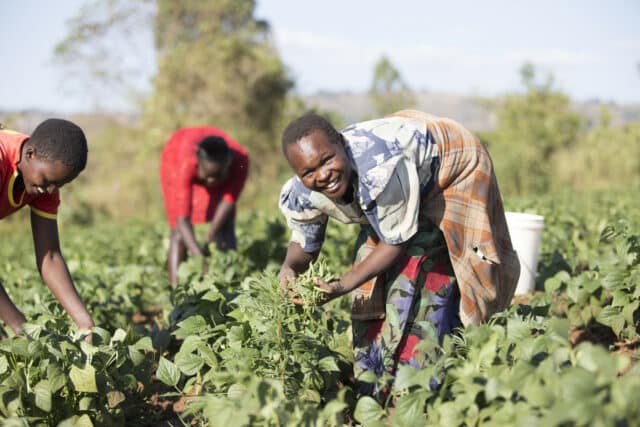Our work
Our programmes
Browse our programmes to learn more about the innovative ways we're partnering with farmers to grow a greener future.
Filter by:
Active
Climate innovations for resilience in Karamoja (CLIRK)
Running since
2024
Country
Uganda
Target reach
150
Key focus areas
Act on climate change
Increase food security and nutrition
Increase incomes
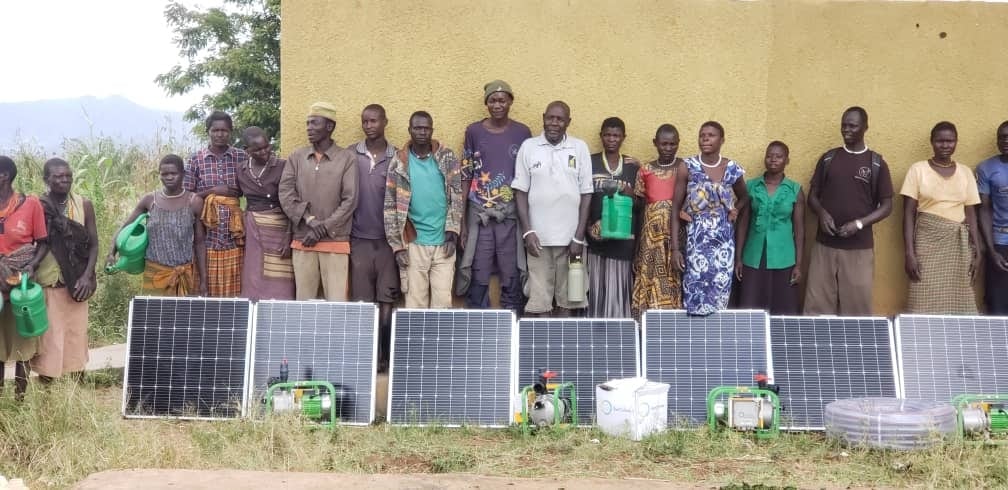
Climate innovations for resilience in Karamoja (CLIRK)
Running since
2024
Country
Uganda
Target reach
150
Key focus areas
Act on climate change
Increase food security and nutrition
Increase incomes
Active
Climate innovations for resilience in Karamoja (CLIRK)
In Uganda’s Karamoja region, Farm Africa is partnering with CARE International and local organisations to enhance climate resilience, food security and incomes of pastoralist communities, with a particular focus on women and young people. The project is transforming valley dam landscapes into sustainable, productive farmland for pastoralists, addressing the region’s critical water retention and agricultural needs amidst rising climate extremes.
The project supports groups of farmers, each guided by a trained Village Based-Advisor (VBA), in climate-smart agriculture, vegetable production and post-harvest handling of their crops. Demonstration gardens are established to grow high-value vegetables and leafy greens and show irrigation innovations that maximise water retention and access to water. Farmers also receive solar-powered irrigation kits, treadle pumps and seeds. As a result, farmers are now growing and eating a diverse range of crops year-round, improving their food security, incomes and nutrition.
As part of the project, farmers are linked to agro-input providers who supply high-quality seeds and agrochemicals, and are connected to buyers for their produce. This enables them to sell vegetables to neighbouring and local markets, restaurants and hotels. With more income, farmers can now buy more healthy food to add to their families’ diets.
Running since
2024
Country
Uganda
Target reach
150
Key focus areas
Act on climate change
Increase food security and nutrition
Increase incomes
Active
Growing stronger markets with quality seeds
Running since
2025
Country
Uganda
Target reach
12,000 (60% women, 40% young people)
Key focus areas
Boost productivity
Connect farmers to markets
Increase access to finance
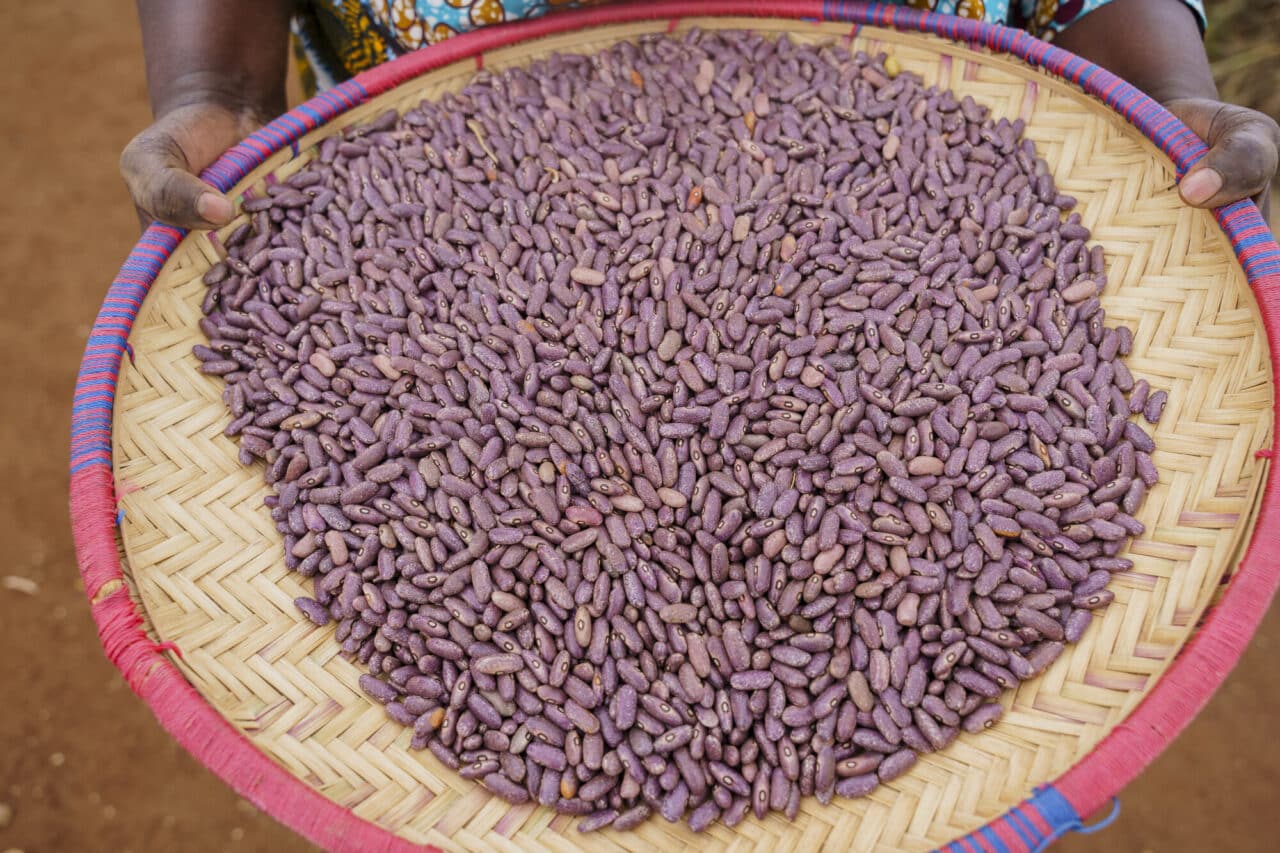
Growing stronger markets with quality seeds
Running since
2025
Country
Uganda
Target reach
12,000 (60% women, 40% young people)
Key focus areas
Boost productivity
Connect farmers to markets
Increase access to finance
Active
Growing stronger markets with quality seeds
With funding from AGRA, Farm Africa is supporting smallholder farmers in eastern Uganda to adopt seed varieties for rice, beans and maize that are nutritious, in high demand and grow well in changing climates.
The project is driving demand for improved seeds by making them more affordable and increasing farmers’ access to and awareness of them. This helps to create a stronger, more resilient market for seeds, which can attract investment and consistently deliver high-quality seeds to farmers.
Farm Africa is training 100 village-based advisors, most of whom are women, and 30 district agricultural officers, to provide extension services to smallholder farmers. These services include climate-smart agriculture, gender training and digital tools such as mobile text messaging to provide advice and support. These services are supported by demonstration plots, where farmers can learn new techniques and see the benefits of improved seed varieties first-hand.
Running since
2025
Country
Uganda
Target reach
12,000 (60% women, 40% young people)
Key focus areas
Boost productivity
Connect farmers to markets
Increase access to finance
Active
CASCADE
Running since
2024
Country
Uganda
Target reach
14,500
Key focus areas
Boost productivity
Empower women
Increase food security and nutrition
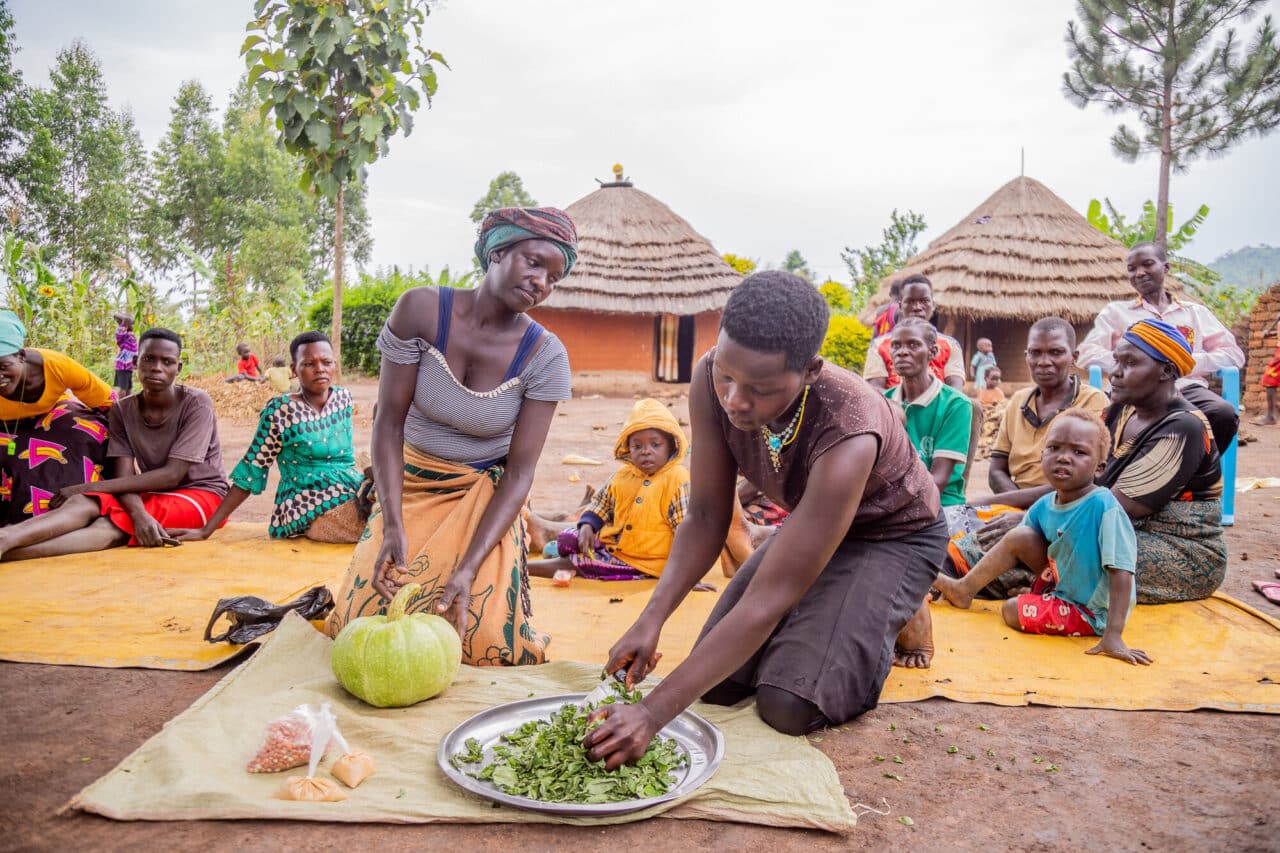
CASCADE
Running since
2024
Country
Uganda
Target reach
14,500
Key focus areas
Boost productivity
Empower women
Increase food security and nutrition
Active
CASCADE
With funding from the Dutch Government, Farm Africa is working in partnership with CARE’s CASCADE programme to put women in eastern Uganda in the driving seat of improving the diets of their young children and themselves, even in the face of climate shocks.
In Uganda’s Karamoja sub-region, poverty and chronic malnutrition is widespread, particularly among women and children. Most families eat a limited diet of cereal grains and wild leaves, and there is low awareness about the importance of a balanced diet. These rural communities rely heavily on natural resources, which leaves them vulnerable to frequent climate extremes.
The project supports rural women in four districts (Moroto, Napak, Abim and Kotido) to grow a range of nutritious foods, learn about healthy eating and overcome cultural barriers holding them back.
Running since
2024
Country
Uganda
Target reach
14,500
Key focus areas
Boost productivity
Empower women
Increase food security and nutrition
Active
Youth empowerment project
Running since
2023
Country
Uganda
Target reach
500
Key focus areas
Boost productivity
Boost youth employment
Support businesses
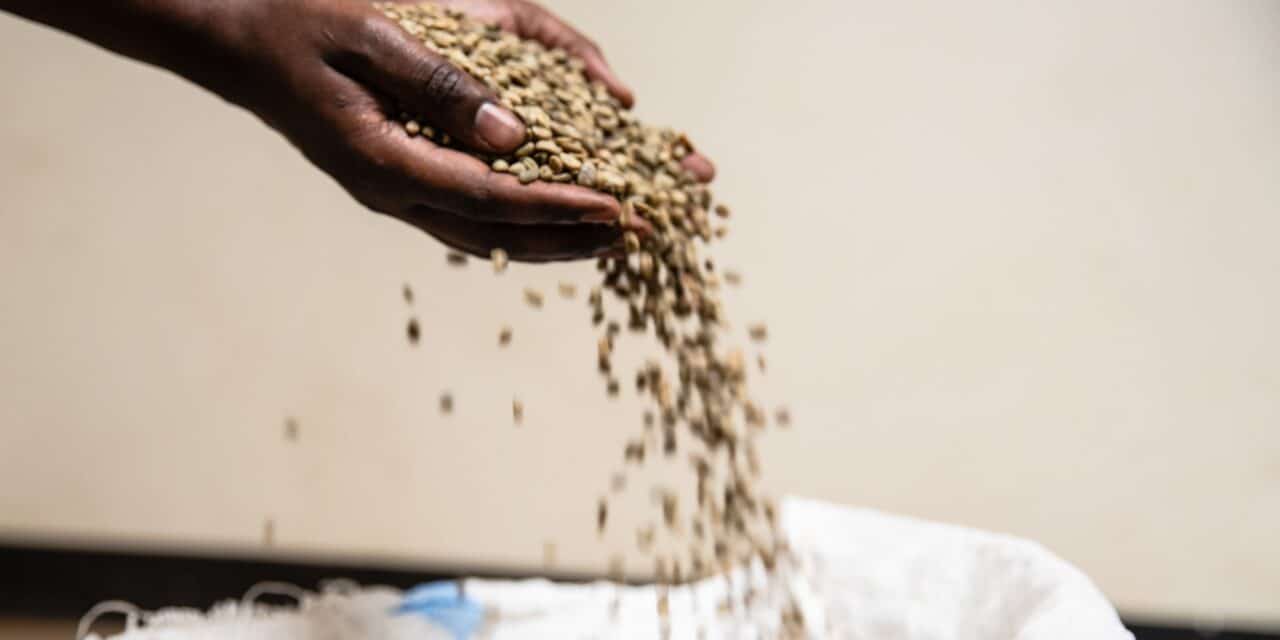
Youth empowerment project
Running since
2023
Country
Uganda
Target reach
500
Key focus areas
Boost productivity
Boost youth employment
Support businesses
Active
Youth empowerment project
The Youth empowerment project (YEP) aims to improve employment opportunities and income for 500 young people in southwestern Uganda by increasing productivity along the coffee, honey, poultry and horticulture value chains.
We’re fuelling productivity by setting up value addition and business incubation centres through Youth Innovation Hubs Africa to help young people launch business ventures along these value chains.
To ensure these young entrepreneurs receive the support they need to become self-sustaining, we’re also training 50 women and young people to become self-employed local business agents who can offer technical advice on selected enterprises, run training workshops and help facilitate access to supplies, land and technology.
Running since
2023
Country
Uganda
Target reach
500
Key focus areas
Boost productivity
Boost youth employment
Support businesses
Complete
Sweet potatoes for prosperity
Running from
2017-2019
Country
Uganda
People reached
2,000
Key focus areas
Boost productivity
Increase food security and nutrition
Increase incomes
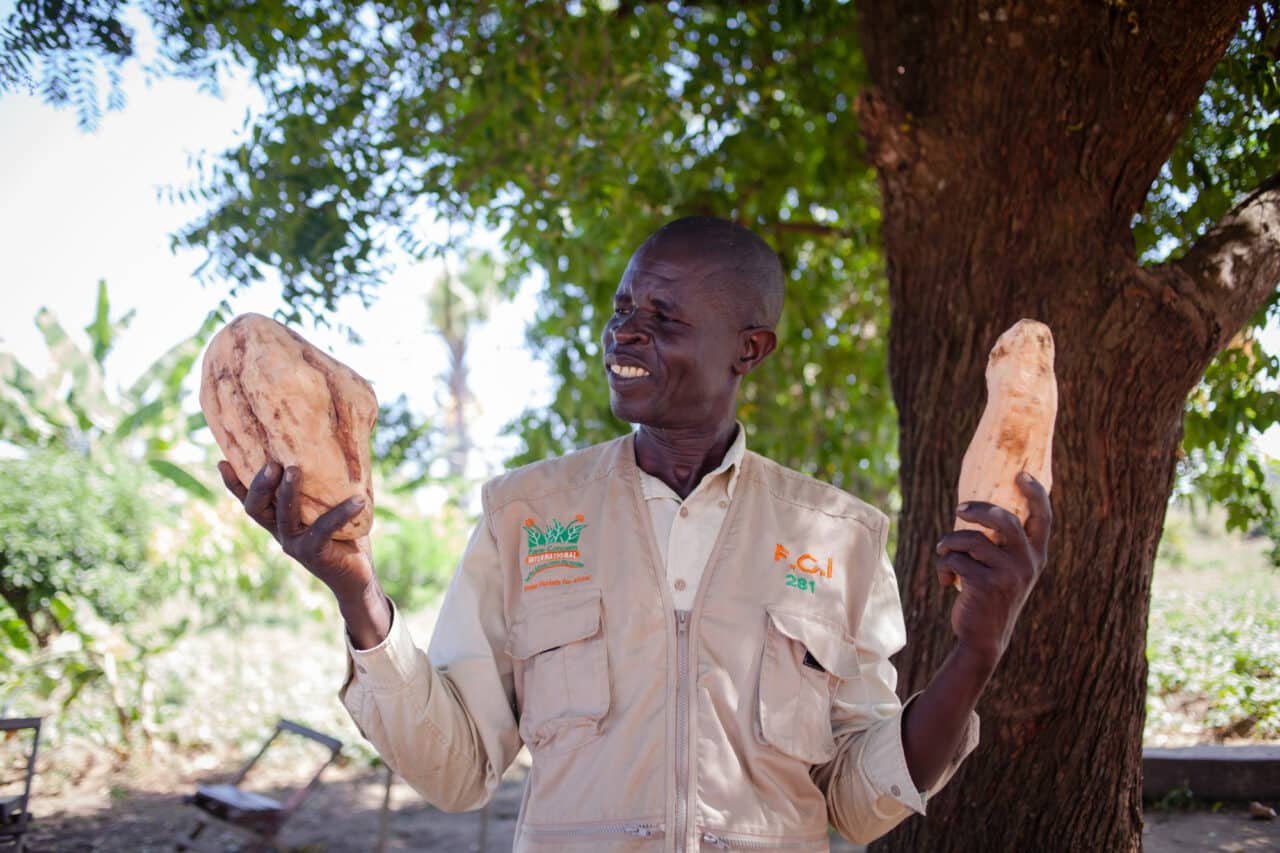
Sweet potatoes for prosperity
Running from
2017-2019
Country
Uganda
People reached
2,000
Key focus areas
Boost productivity
Increase food security and nutrition
Increase incomes
Complete
Sweet potatoes for prosperity
Working in partnership with Soroti Sweet Potato Producers Association (SOSPPA) and farmers previously trained by Harvest Plus, this project ensured a consistent supply of orange-fleshed sweet potatoes to help fight the effects of vitamin A deficiency.
Running from
2017-2019
Country
Uganda
People reached
2,000
Key focus areas
Boost productivity
Increase food security and nutrition
Increase incomes
Complete
Increasing market-orientated production of Arabica coffee together
Running from
2021-2023
Country
Uganda
People reached
40,034
Key focus areas
Boost productivity
Boost youth employment
Connect farmers to markets
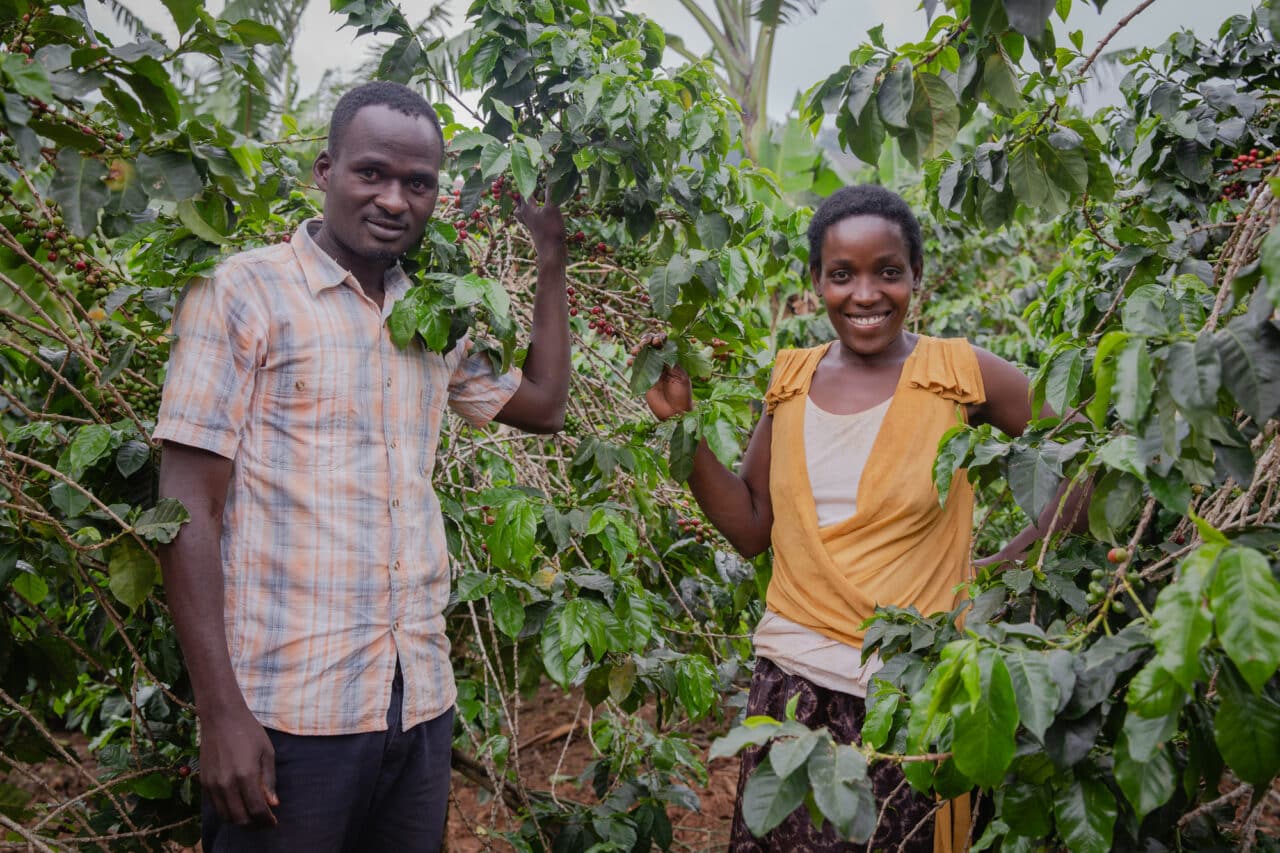
Increasing market-orientated production of Arabica coffee together
Running from
2021-2023
Country
Uganda
People reached
40,034
Key focus areas
Boost productivity
Boost youth employment
Connect farmers to markets
Complete
Increasing market-orientated production of Arabica coffee together
This project helped western Uganda upgrade its coffee value chain with a focus on delivering increased volumes of sustainably produced, quality Arabica coffee to premium export markets and including smallholder farmers in the value chain.
Farm Africa worked with the Ugandan coffee processor and exporter, UGACOF, to reduce losses during production, harvest and post-harvest handling; expand marketing opportunities for smallholder farmers and help them diversify into higher value export markets.
The project helped farmers deliver a consistent supply of quality coffee cherries to UGACOF who marketed the produce to European Union, and African, Caribbean and Pacific roasters.
Running from
2021-2023
Country
Uganda
People reached
40,034
Key focus areas
Boost productivity
Boost youth employment
Connect farmers to markets
Complete
Commercialising chilli production
Running from
2018-2021
Country
Uganda
People reached
17,000
Key focus areas
Connect farmers to markets
Increase access to finance
Support businesses
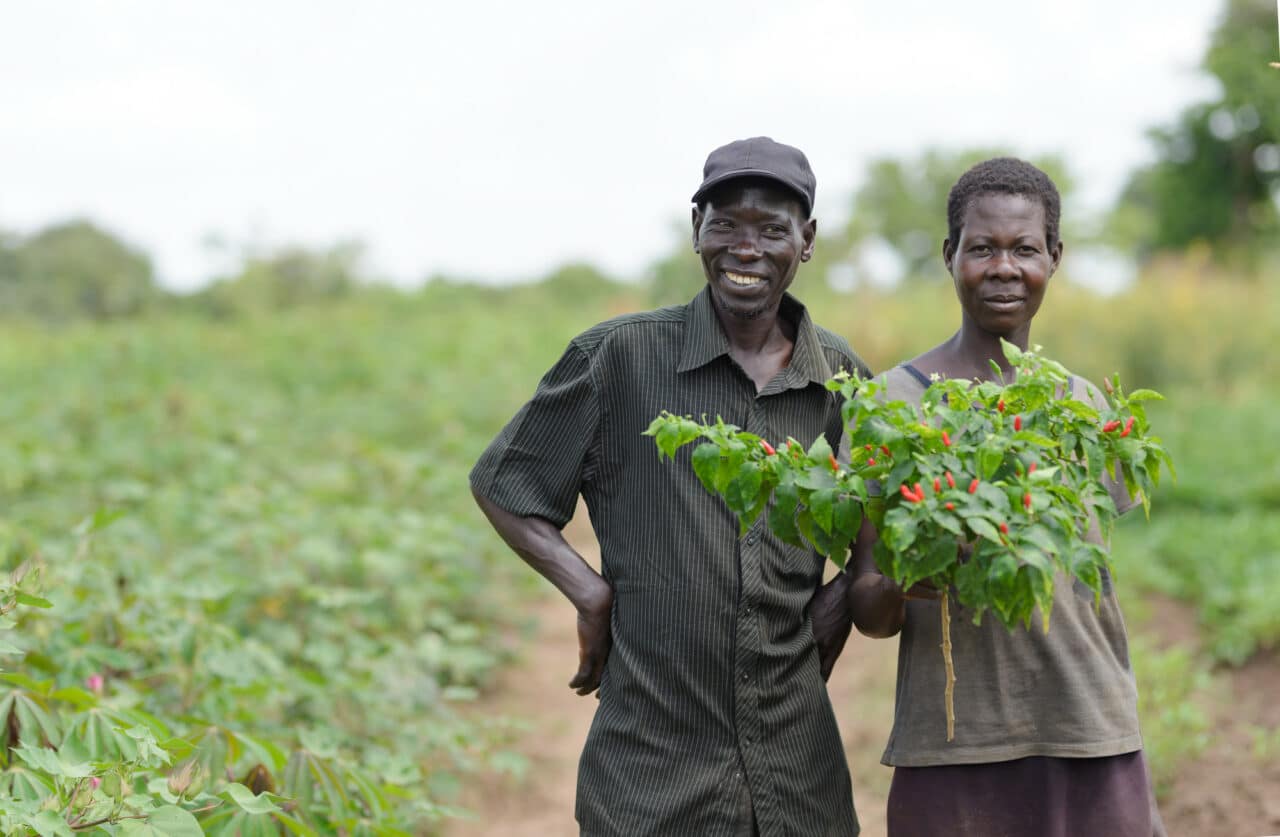
Commercialising chilli production
Running from
2018-2021
Country
Uganda
People reached
17,000
Key focus areas
Connect farmers to markets
Increase access to finance
Support businesses
Complete
Commercialising chilli production
Working with 17,000 farmers and selling 44% of all exported Uganda chillies in 2017, Northeast Chilli Producers Association (NECPA) is a key player in the chilli industry. Farm Africa helped NECPA adopt a more market-orientated business model, which opened up new export opportunities to chilli farmers. This involved helping chilli growers gain access to quality seeds and equipment, increase their yields and meet international buyers’ quality standards.
Running from
2018-2021
Country
Uganda
People reached
17,000
Key focus areas
Connect farmers to markets
Increase access to finance
Support businesses

